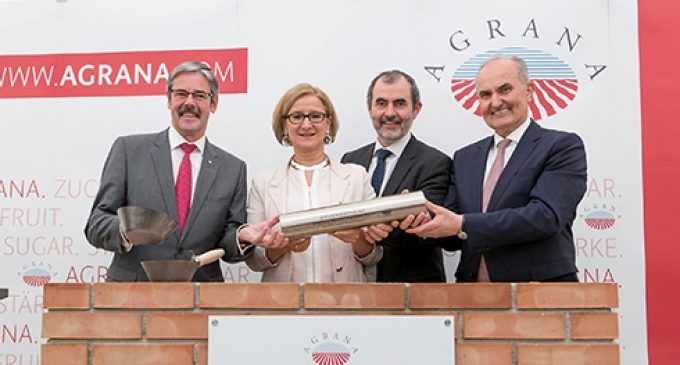AGRANA to Invest €100 Million in New Wheat Starch Plant

AGRANA, the fruit, starch and sugar company, has laid the foundation for a second wheat starch plant at its biorefinery at Pischelsdorf in Tullnerfeld, Austria. The €100 million investment will double AGRANA’s wheat starch production, expanding the total processing capacity at the Pischelsdorf site from the current 800,000 tonnes to more than 1 million tonnes of grain annually and creating 45 new jobs.
AGRANA refines agricultural raw materials into high-quality food and a variety of industrial products. Employing 8,900 people at 57 production sites worldwide, AGRAN has sales of around €2.6 billion. The company was founded in 1988 and is now the leading sugar company in Central and Eastern Europe, and witin the Starch segment is a major producer of customized starch products and bioethanol in Europe. AGRANA is also the world leader in fruit preparations and the most important producer of fruit juice concentrates in Europe.
“The expansion of the plant will secure the long-term competitiveness of the Pischelsdorf site and take into account the growing demand, in particular of the paper industry, for the growing demand for packaging for online mail order,” explains AGRANA CEO Johann Marihart.
In addition to the wheat starch plant, Austria’s only bioethanol plant will be located at the Pischelsdorf site with around 200 employees. Due to the close integration of the two plants, the cereals used are 100% recycled. After harvesting wheat starch and wheat gluten, the unused raw material components go into bioethanol production as well as into the production of the GMO-free protein feed ‘ActiProt’. The latter replaces the EU import of around 200,000 tonnes of genetically modified soybean meal from overseas. Finally, high-purity CO2, which liquefies the neighbouring plant of the industrial gas group Air Liquide from the fermentation tanks of the bioethanol plant, is used to produce high-quality products from a raw material at the Pischelsdorf site.
“We are very proud of our biorefinery at Pischelsdorf. It is considered a prime example of a complete utilization of the raw materials used and contributes significantly to the realization of the basic idea of a closed circular economy , adds Johann Marihart.
CAPTION:
Pictured (from left): AGRANA Chairman of the Supervisory Board Erwin Hameseder; Lower Austrian Governor Johanna Mikl-Leitner; Secretary General Josef Plank of the Federal Ministry of Sustainability and Tourism; and AGRANA Director General Johann Marihart. (photo credit: AGRANA/Martina Draper)

































